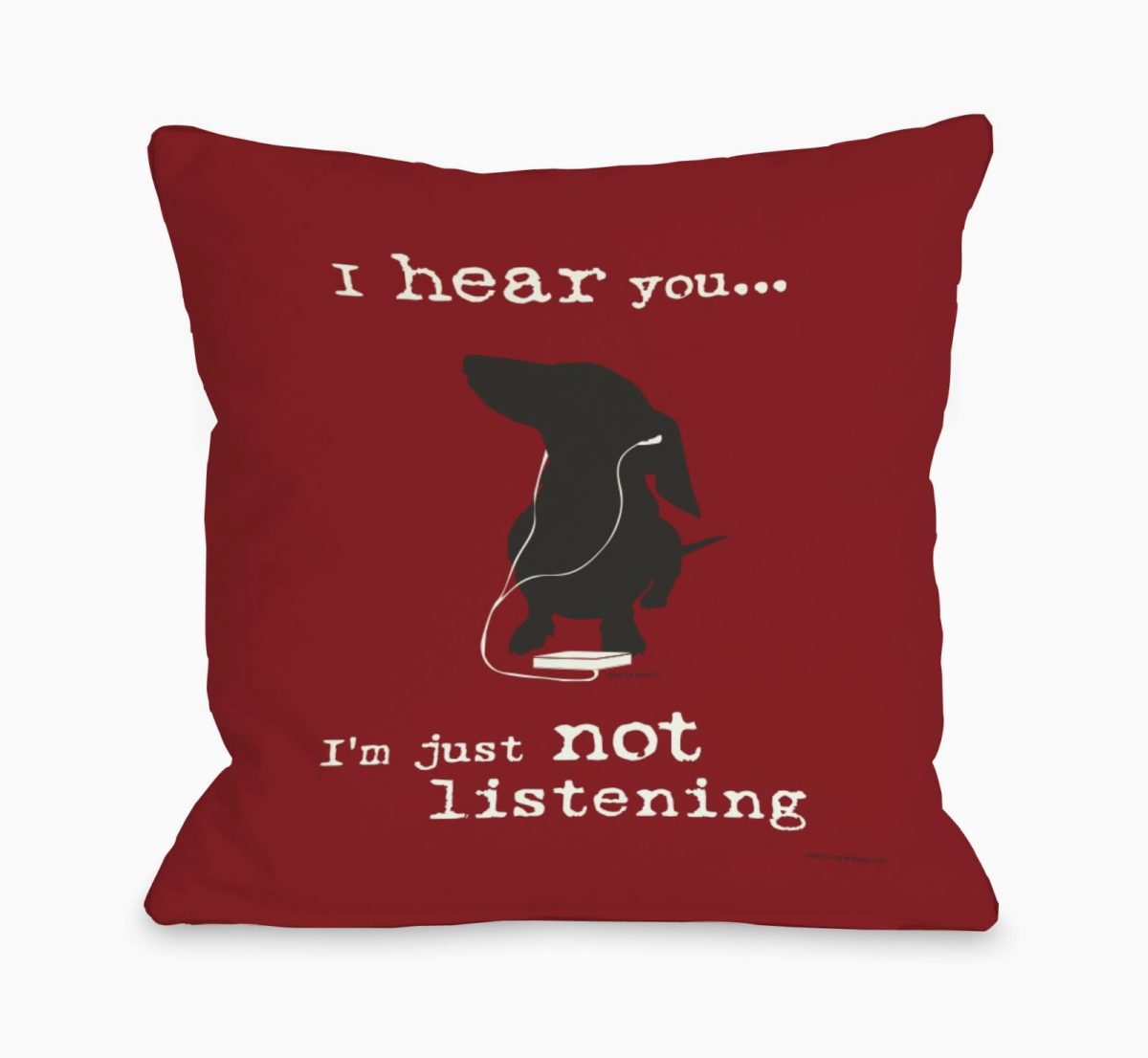and what’s in it for you
Have you ever been talking to someone who is looking around the room while you speak?
Or who interrupts you to say something about a completely different subject?
Maybe you were confiding in a friend who seemed distracted and when you accused her of not listening, she said indignantly, “I was listening!” To prove it she parroted back the last phrase you had spoken.
There is a difference between listening and technically hearing what is said.
Hearing what is said takes short term memory — it only indicates that on a surface level you took in their words but didn’t join emotionally with the person speaking to you. Listening is being receptive to your own inner wisdom, while emotionally attuned to the other person.
Men tend to be better listeners than women because generally they can tolerate silence better. Women are better listeners than men in that they are more comfortable sharing emotions. Men need to learn how to be more emotionally available and responsive. Women need to learn how to be supportive through their presence rather than talking too much.
Becoming a better listener means becoming a better person because it cultivates emotional maturity and generosity. Is it possible to become a great listener? Yes it is.
Here are eight ways you can develop great listening skills:
1. Be interested. Many people think listening means keeping quiet until it is their turn to talk. But true listening is a selfless act. Listening means giving your thoughtful attention to another person. This attention is non-judgmental, open-minded, respectful and curious.
2. Listening is receiving. We are receiving the trust and vulnerability of another person. To be a receiver, let yourself be a blank canvas for the other person. Allow your friend to toss out ideas, feelings, contradictory thoughts, and whatever else is coming up. Let her be upset or illogical.
3. Indicate you’re listening with subtle cues. Let the person know that you’re interested by nodding your head, murmuring “mmm hmmm,” and softly echoing a word or short phrase here and there.
4. Attuning and matching. A good listener usually makes eye contact, but might also sit companionably side by side and gaze straight ahead, allowing the talker privacy and intimacy at the same time. Attune yourself to the person talking to you by noticing the degree of eye contact they are making with you and match them.
For instance, if the person seems self-conscious and looks down or away a lot, drop your gaze as well from time to time. This way she will feel accepted rather than scrutinized. If she is animated and leaning towards you, lean towards her. Pick up on her rhythm, her body language. Psychological research has found that people feel understood when we use the same gestures they use. This helps them to feel safe and relaxed.
5. Wait for an organic pause. Try not to interrupt — it’s an amazing gift to provide enough space for someone to let it all out. When there is a lull, and the person seems to have unburdened themselves, that will be the time to speak. When I was a student in Gestalt psychotherapy training, I would eagerly jump in while clients were still talking and a fellow student told me that I wasn’t waiting for the “organic pause” — that natural breath between spoken thoughts that opens the door to another voice chiming in.
I come from a cultural background where we are used to interrupting each other’s interruptions, and it isn’t unusual for five conversations to be going on at the same time. Even if this is acceptable socially, it doesn’t work when someone really needs a shoulder to cry on, or in a work situation, if a colleague needs to resolve professional issues.

6. Acknowledge and empathize. Good listening is not complete silence. When the time comes to speak, briefly reiterate to the person what you heard them say. For example, if your friend tells you in a loud, excitable voice, “My boyfriend had lunch with his ex yesterday! He won’t tell me what they talked about. He’s shutting me out. Does he still love her? Should I break up with him before he breaks up with me?” As a good listener, let her vent. Do not say, “Calm down. Relax. Everything will be okay.” That will only escalate her feelings because she will feel, rightfully so, that you cannot tolerate her being upset.
Instead, use some of her words, and say, “Okay, your boyfriend had lunch with his ex yesterday. Now you’re feeling shut out and scared that he may still love her and want to get back with her?” Your friend will feel “heard” because you actually were strong enough to hear her, instead of trying to get her to calm down on your timetable. Chances are she will say, “Yes!” Then she may burst into tears, or talk some more, or quiet down. You are now helping her productively process her feelings, rather than frantically obsessing over them.
“It sounds like you’re really upset with your boyfriend for having lunch with his ex. If I were you I’d feel the same way.” or “I know you really wanted that promotion and I don’t blame you for feeling it was unfair that the new guy got it.” By reflecting back to the person what they said in their own words, you are acknowledging you heard them accurately. And by saying you might feel the same way, you are putting your foot in their shoe and empathizing with them.
The emotional tone of what you say should be responsive rather than reactive. In other words, while you’re listening take note of what’s coming up for you and put it on a back shelf. Sort out what is useful for the person who is confiding in you and, for now, keep your own emotions and opinions to yourself.
7. Don’t give unasked for advice. Most of us have not been listened to in the way I’m describing, so we’re not used to listening to someone else this way. We may consider ourselves very nice people and have all kinds of good ideas for the person speaking to us about their problem. What we don’t realize is that offering solutions before a person has expressed their upset feelings doesn’t work. Do you want to be told what to do while you’re venting?
8. Make an offering. After acknowledging and empathizing, you have the option of offering something more. It can be something simple like, “How can I help?” or “Would you like some feedback from me?” Chances are your friend feels relieved and solutions are starting to form within her now that she’s cleared a space inside herself. Don’t be surprised if your good listening facilitates her having a revelation about herself or the situation. She may tell you that you’ve done more than enough already! If she does want feedback, this is your opportunity to share your experience and offer advice. Timing is everything — wait until you’re invited.

What’s in it for you? Great listeners are receivers — they receive trust, they are in an honored position in that way. They help people sort out their thoughts and feelings. Listeners offer solace and consolation. They celebrate and appreciate good news or achievements. And in the process, listeners receive the gratification of being there for someone else. Listeners have cultivated patience to wait until another person has talked themselves out — and have discovered that people often find their own answers to their struggles.
So, listening develops faith in us that people have an inner intelligence. We don’t have to be mini-Gods and fix everyone’s problems by jumping in and talking too much or too soon. Listening requires patience, generosity, and humility. Becoming a great listener is a process of maturing. By developing great listening skills, we provide a mirror that reflects back to the person speaking what is inside of them, and that is powerfully rewarding for both of us. Listening is truly one of the highest forms of love.
The cat’s out of the bag. Reverend Amy Torres is a spiritual teacher with
a colorful past … which comes in handy when coaching clients in need of non-judgmental understanding, wise guidance, and a touch of mysticism. Scroll down if you’d like to improve your relationships …






